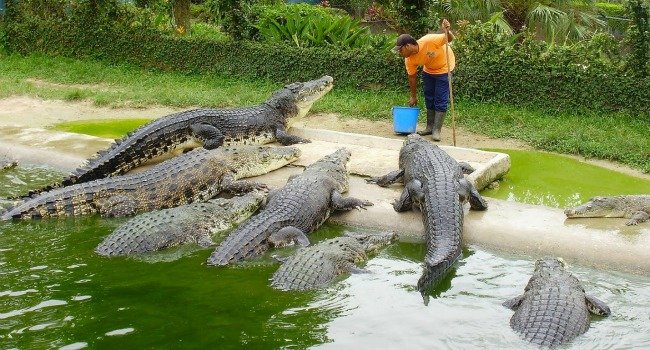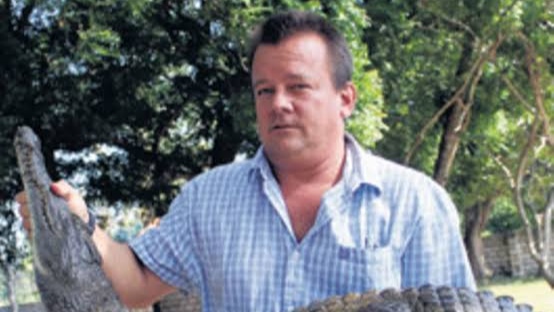Daniel Haller is the owner of Nile Crocodile Farm located in Kilifi County.
He was inspired to rear the animals by his father, a renowned environmentalist who introduced crocodiles to eat dead chicken and sheep on his farm to avoid wastage. READ FULL STORY
Haller slaughters between 4,000 and 5,000 reptiles each year and preserves their wet-salted skin at three degrees centigrade.
Here is his story as told by EAFeed.
Haller’s father exposed him to crocodile farming when he was growing up, and that experience motivated him to build his own farm.
His father, an environmentalist, brought crocodiles to their farm in the 1970s so they could consume dead sheep and chicken to prevent wastage.
“My father felt that he had to find something to eat the animals and birds. He experimented and found that crocodiles were the best option,” he said.
Hallet studied aquaculture in the 1980s and earned a Master of Science in the field from the University of Stirling in Scotland.
He started the farm in collaboration with the late Harun Muturi after returning to Kenya in the 1990s.
The two secured a loan of Ksh 34.2 million from European Investment Bank with Muturi providing additional money to purchase the land.
After getting a space, Haller and Muturi applied for a licence from Kenya Wildlife Service (KWS) to practice crocodile farming in 1996.
Haller keeps the crocodiles mainly for skin which he sells to leather companies including Heng Long Leather Ltd which is based in Singapore.
In an interview, Haller said the skin is sold according to the belly width with international market price for first grade skin of an animal which is five years old and about 190cm long is KSh 13,350.
“The skin should be unblemished and high quality to get its full value, which reduces by 25 per cent if there is any blemish,” he said.

Crocodile skins can be used in production of wallets, handbags and shoes among other leather products.
Additionally, Haller sells crocodile meat to hotels and the local community for between Ksh 280 to Ksh 350 a kilo.
Every year, Haller slaughters between 4,000 and 5,000 crocodiles at the farm. Their moist, salted skin is then preserved at three degrees Celsius.
High-quality crocodile skin translates into profitable sales.
“It is a business that requires a lot of attention to detail. You can lose all your money by producing skin which does not have the right quality
“The risk is high and you can go bankrupt if after five years you do not get the right quality needed for the international luxury fashion industry. Quality standards also keep on increasing and the price fluctuates depending on demand in the global market,” Haller explained.
Haller further explained that he does breed the crocodiles in his farm but he works with locals who collect eggs left behind by wild crocodiles between December and January.
While each female crocodile lays about 32 eggs a year, locals get paid Ksh 20 for every egg collected and a Ksh 25 bonus if the eggs hatch.
“Crocodiles are wild animals, you must always be careful when handling them to avoid getting bitten. The key, however, in the farming is to reduce their stress as much as possible so that they stay calm,” Haller explained.







